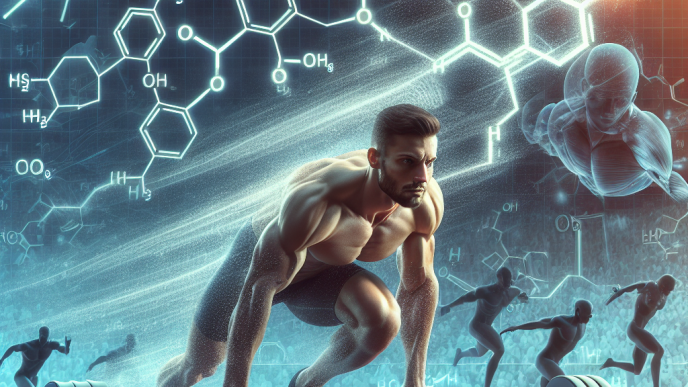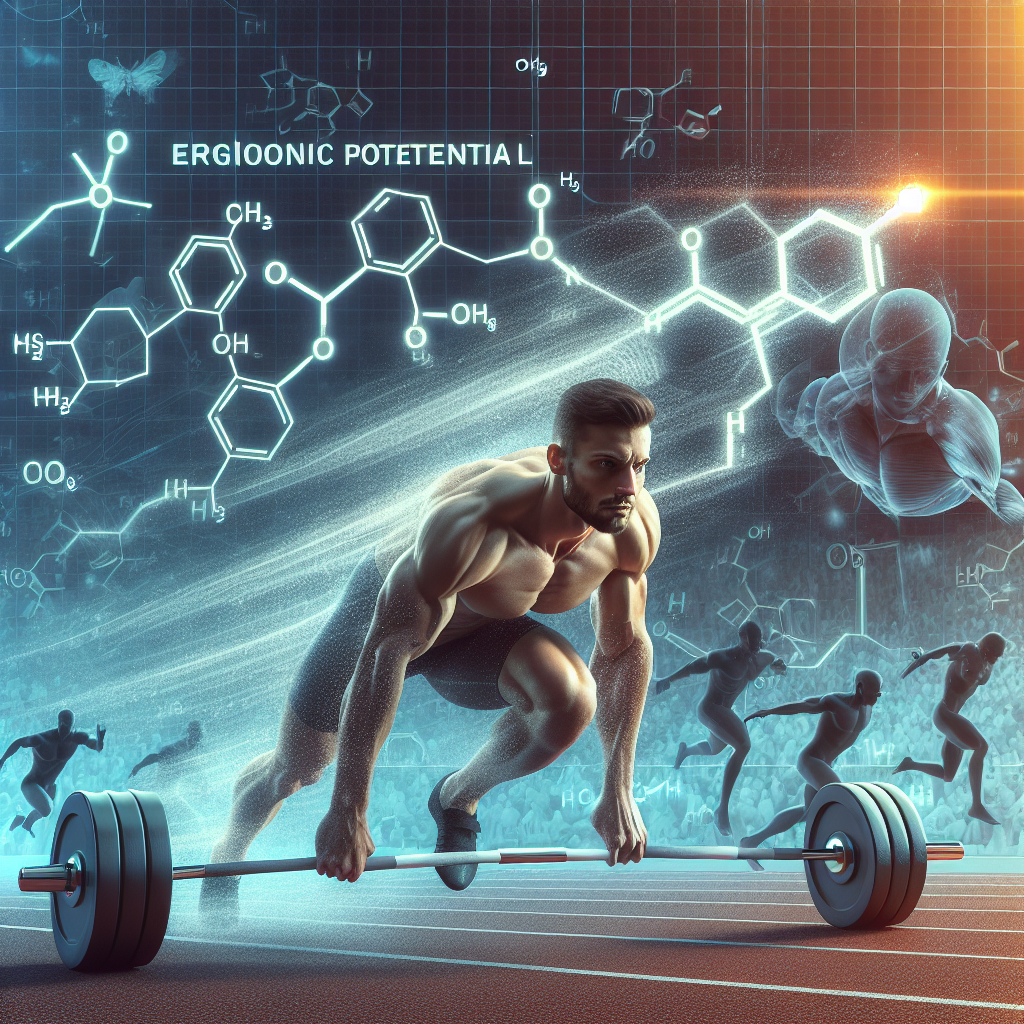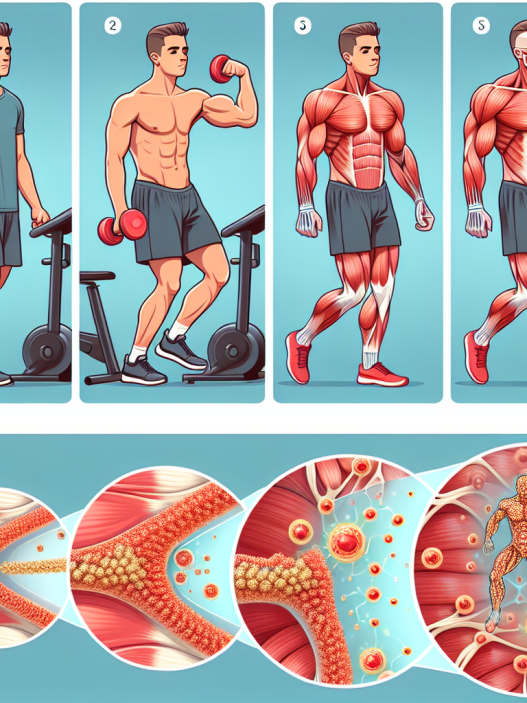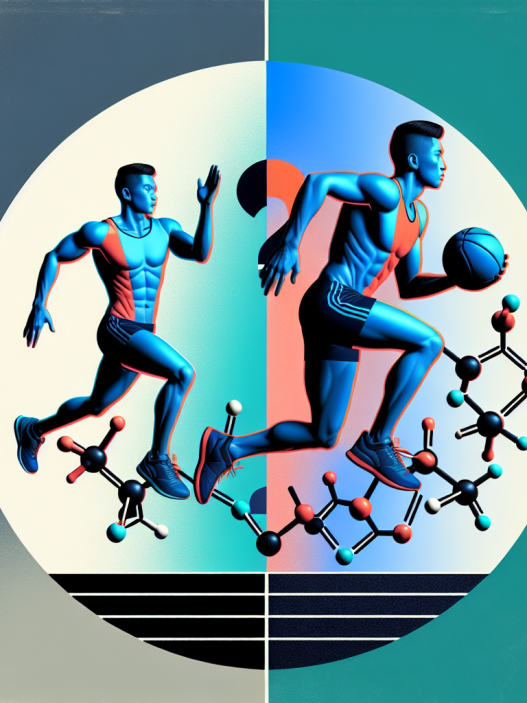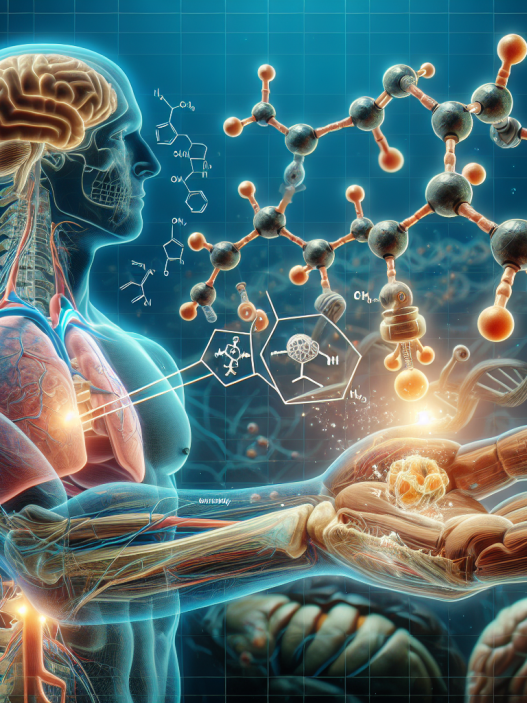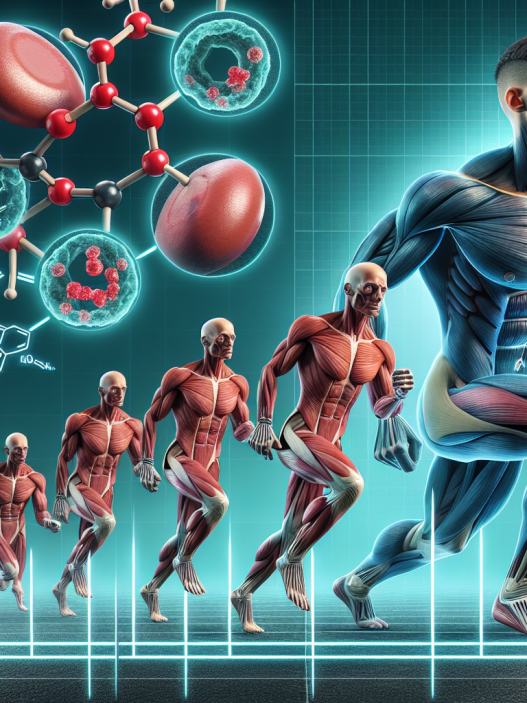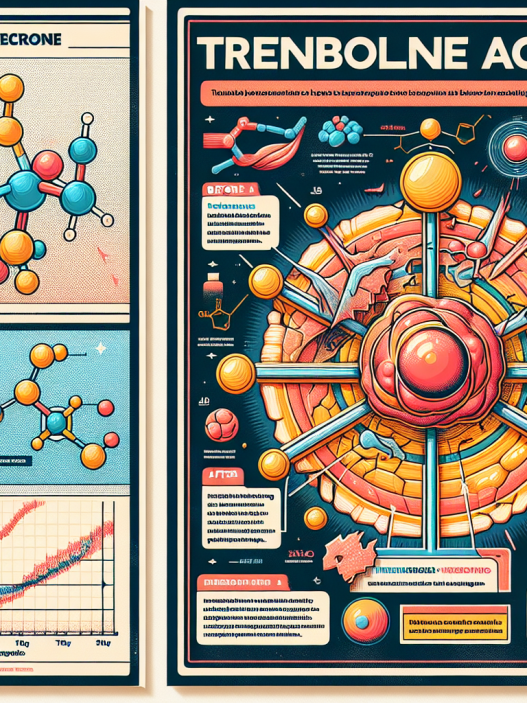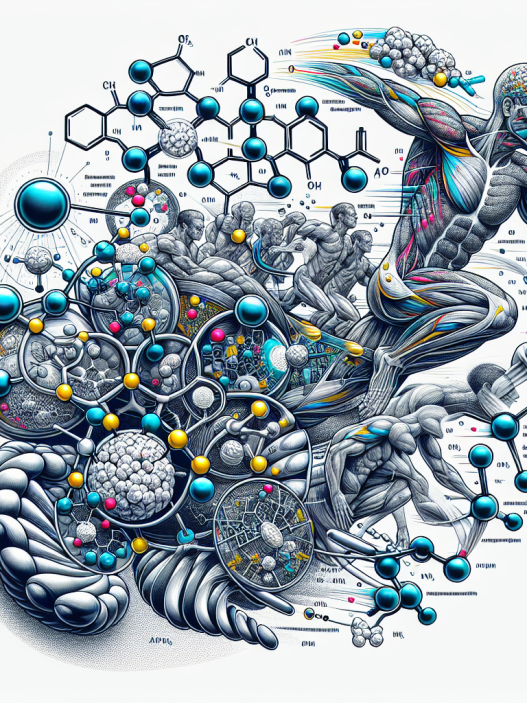-
Table of Contents
Ergogenic Potential: Testosterone Propionate in Sports
Testosterone is a naturally occurring hormone in the human body that plays a crucial role in the development and maintenance of male characteristics. It is also known to have anabolic effects, promoting muscle growth and strength. As a result, testosterone has been used as an ergogenic aid in sports for decades. One form of testosterone, testosterone propionate, has gained attention for its potential performance-enhancing effects. In this article, we will explore the pharmacokinetics and pharmacodynamics of testosterone propionate and its potential use in sports.
Pharmacokinetics of Testosterone Propionate
Testosterone propionate is a synthetic form of testosterone that is administered via injection. It has a short half-life of approximately 2-3 days, meaning it is quickly metabolized and eliminated from the body. This makes it a popular choice among athletes as it can be used to rapidly increase testosterone levels before a competition without the risk of detection in drug tests.
After injection, testosterone propionate is rapidly absorbed into the bloodstream and reaches peak levels within 24-48 hours. It is then metabolized by the liver and excreted in the urine. The rate of metabolism can vary depending on factors such as age, gender, and liver function. Studies have shown that the pharmacokinetics of testosterone propionate are similar in both young and older men, with no significant differences in absorption or elimination rates (Nieschlag et al. 1992).
Pharmacodynamics of Testosterone Propionate
The anabolic effects of testosterone propionate are well-documented. It works by binding to androgen receptors in muscle cells, stimulating protein synthesis and promoting muscle growth. This leads to an increase in muscle mass and strength, making it a popular choice among bodybuilders and athletes looking to improve their performance.
Studies have also shown that testosterone propionate can improve athletic performance by increasing red blood cell production and oxygen delivery to muscles (Bhasin et al. 1996). This can result in improved endurance and stamina, allowing athletes to train harder and longer. Additionally, testosterone has been shown to have a positive effect on mood and motivation, which can also contribute to improved athletic performance.
Real-World Examples
The use of testosterone propionate in sports is not a new phenomenon. In fact, it has been used by athletes for decades, with some notable examples in professional sports. In the 1988 Olympics, Canadian sprinter Ben Johnson tested positive for testosterone propionate and was subsequently stripped of his gold medal in the 100-meter dash. More recently, in 2012, American cyclist Lance Armstrong admitted to using testosterone propionate as part of his doping regimen during his career.
While these examples highlight the potential misuse of testosterone propionate in sports, it is important to note that it is a controlled substance and its use without a prescription is illegal. However, there are legitimate medical uses for testosterone propionate, such as treating hypogonadism in men, and it is important to distinguish between its appropriate and inappropriate use.
Expert Opinion
As with any performance-enhancing substance, the use of testosterone propionate in sports is a controversial topic. While some argue that it provides an unfair advantage and should be banned, others argue that it is a natural hormone and its use should be allowed under medical supervision. Ultimately, the decision lies with sports governing bodies and their anti-doping policies.
However, it is important to note that the use of testosterone propionate, or any form of testosterone, can have potential side effects. These can include acne, hair loss, and an increased risk of cardiovascular disease. Therefore, it is crucial that athletes and individuals considering using testosterone propionate fully understand the risks and consult with a medical professional before use.
Conclusion
In conclusion, testosterone propionate has been shown to have potential ergogenic effects in sports. Its short half-life and ability to rapidly increase testosterone levels make it an attractive choice for athletes looking to improve their performance. However, its use without a prescription is illegal and can have potential side effects. As with any performance-enhancing substance, it is important to weigh the risks and benefits before use and consult with a medical professional.
References
Bhasin, S., Storer, T. W., Berman, N., Callegari, C., Clevenger, B., Phillips, J., … & Casaburi, R. (1996). The effects of supraphysiologic doses of testosterone on muscle size and strength in normal men. New England Journal of Medicine, 335(1), 1-7.
Nieschlag, E., Swerdloff, R., Nieschlag, S., & Swerdloff, R. (1992). Testosterone: action, deficiency, substitution. Springer Science & Business Media.






